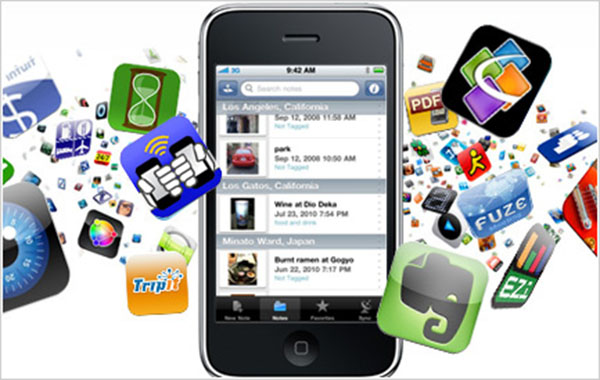Need to create a great presentation for your next client pitch? There’s an app for that. Need to track your business mileage and expenses? There’s an app for that too.
In fact, there’s an app—short for application software that makes your computer perform tasks—for just about everything a business needs. Here are some must-have apps for your small business.
“If having your business name as part of your email address is not a high priority, consider online free email providers, such as Gmail, to save money,” says Stuart Paradies, CPA, CA, a Director with Odyssey Business Consulting Services Inc. in Toronto. “Other software, such as Microsoft Office 365, offer cloud computing services that include email account hosting for small businesses.” Microsoft Office 365 costs $80 to $100, depending on the features and number of users.
Office basics
“Microsoft Office is the go-to application for word processing, spreadsheets and presentation tools, because it offers small business packages at competitive pricing,” says Paradies. “You may also want to adopt cloud computing, where these applications are hosted online, which means you don’t have to install and update applications on personal computers.” Microsoft Office for home and business costs about $250, while cloud software is usually paid for via a monthly subscription fee.
If you use a Mac, consider Keynote software for your presentations. “Keynote provides everything you could want to do for a presentation,” says Ralph Machon, CPA, CA , President of Business Technology Solutions Inc. in Cobourg. “It allows you to create and edit your presentation and add in photos, video and interactive charts. It works on Mac and iOS (Apple’s mobile operating system) and the final presentation is compatible with Microsoft PowerPoint.” Keynote is available from Apple for $19.99.
Accounting
“You should consider some basic accounting software to record your business’s day-to-day activities, such as customer invoicing and vendor payments,” says Paradies. “Off-the-shelf apps that do this include QuickBooks and Sage.” Accounting software costs can range from approximately $100 to several hundred dollars, depending on the features you select.
Backup and anti-virus
“If you use a single computer for your business, buying an external hard drive with automatic backup software is a must,” advises Paradies. “If you use a server, make sure you also have data backed up elsewhere. An investment in a good anti-virus software application that will scan your computer is also a must-have.” Anti-virus software usually ranges from $50 to $100.
Collaboration
“If you need to share files with others, Dropbox is a good solution,” says Machon. “It allows you to set up various folders on the cloud and share them with different groups of people, or use them just for yourself. The files are accessible on your smartphone, computer and tablet.” Dropbox is free for up to two gigabytes (GB) of storage space, but you can purchase additional storage. “Other options are Google Drive, which offers five GB free, and Microsoft SkyDrive, which offers seven GB free,” adds Machon.
Time and expense tracking
“Using an app to track time and expenses is a good idea,” says Paradies. “Some of the basic accounting applications do offer more advanced versions of their software that do this.”
If you travel for business, consider Microsoft Mileage Tracker. “This app allows you and your staff to record and track mileage for tax and expense purposes,” says Machon. “It is a very full featured app that even has real-time GPS for accurate tracking of distance and time.” Mileage Tracker costs just under $3.
Inventory and production management
“Small manufacturing businesses need software to manage inventory and production,” says Paradies. “While accounting software may offer some level of support, you may need more robust applications, such as Microsoft’s Dynamics or SAP’s Business One. However, the cost does rise with these applications, and you may need more sophisticated hardware to run them.”
Organizing
“Evernote is a great app that allows you to keep to-do lists, notes, web pages, photos, voice memos and even handwritten notes in one place,” says Machon. “You can organize your information into searchable notebooks, and access it from all your devices. You can even share notes among different people.” Evernote runs on most operating systems, is free, and also has a premium version starting at $5 monthly.
Scanning
“If you need to get a copy of a printed document to a client or colleague quickly, try CamScanner,” suggests Machon. “It turns the camera in your smartphone or tablet into a scanner that takes a picture of the document, turns it into a PDF file and lets you share it immediately by email.” It’s free, although a premium version with additional features is also available. It runs on most operating systems.
Before you decide
Before selecting an app, consider the specific needs and budget of your business.. Review the applications you already have, and consider how a new app will work with them. Ideally, your apps should make your life easier and allow you to focus on growing your business.
Brought to you by Chartered Professional Accountants of Ontario.
 Pride News Canada's Leader In African Canadian & Caribbean News, Views & Lifestyle
Pride News Canada's Leader In African Canadian & Caribbean News, Views & Lifestyle





